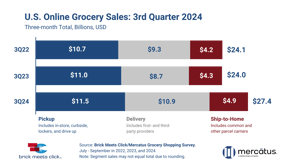CHILEAN SALMON EMBROILED IN TRADE BATTLE
WASHINGTON (FNS) -- Chilean salmon suppliers won the first round in a protracted battle with their U.S. counterparts, who are seeking the imposition of hefty import duties on the fish, claiming the Chilean government is unfairly subsidizing the industry.Should import duties fall on the Chilean product, it would likely drive up retail prices, said industry sources.During 1996, Chilean exporters shipped
December 1, 1997
JIM OSTROFF
WASHINGTON (FNS) -- Chilean salmon suppliers won the first round in a protracted battle with their U.S. counterparts, who are seeking the imposition of hefty import duties on the fish, claiming the Chilean government is unfairly subsidizing the industry.
Should import duties fall on the Chilean product, it would likely drive up retail prices, said industry sources.
During 1996, Chilean exporters shipped 26.7 million kilograms of all salmon to the United States, making them as a group the top foreign source of this product, according to U.S. Department of Commerce data. The United States imported 52.3 million kilograms of salmon from all nations in 1996.
The Commerce Department late last month said it had made a "preliminary decision" that Chile has not provided special subsidies to various Chilean companies that export fresh Atlantic salmon to the United States.
The decision is of more than academic interest to U.S. retailers, said George Green, vice president and general counsel of the Food Marketing Institute here.
"We think that any other decision would be a disservice to U.S. consumers and [the decision] enables them to continue to receive a high-quality product at good prices," Green told SN.
The FMI attorney said retailers are especially concerned about the availability of "Chilean salmon, since it is a filet product that consumers are looking for in the supermarket. It is easy to handle and it's a distinct product from the salmon produced domestically."
Richard Gutting, the National Fisheries Institute's executive vice president, noted Chilean salmon "now anchors many fresh-fish and fresh-food counters at supermarkets and in restaurants because it is so much in demand by consumers."
Gutting said the institute has not taken sides in this trade dispute, as its members include a
wide range of interests, ranging from salmon producers to retailers. "But if this product were no longer available, I think it would significantly hurt the position of all seafood in the marketplace," he said.
In July, a coalition of American salmon suppliers, most of who are based in Maine, had charged that they were facing unfair competition from Chilean exporters, whom they alleged had received unspecified subsidies from their government.
Under U.S. law, the Commerce Department's International Trade Administration can impose penalty import tariffs, called countervailing duties, if it determines the subsidies exceeded 1% of the fish's cost, ad valorem.
After surveying Chilean salmon exporters and examining that nation's bank lending practices, the trade agency determined the subsidy for all salmon products exported to the United States to be 0.62% of the cost. Consequently, it ruled that no import penalty duties should be levied on these imports.
The salmon saga does not end there, however. The agency will review its data and findings and issue a final ruling by March 21, 1998, though this date could be pushed back to May 26.
Meanwhile, the Commerce agency also is investigating charges by the same American firms that individual Chilean salmon exporters are "dumping" their product in the U.S. market at prices below production costs.
Dumping is a predatory practice in which a foreign firm seeks to dominate the U.S. market, for example, by underselling its American competitors, in order to drive them out of business or reduce their market share.
Commerce's ITA is slated to render is antidumping decision on the same day next year as its final subsidy decision. Should Commerce determine that any Chilean salmon exporters have engaged in dumping, or are benefitting from unfair subsidies, it can recommend to another agency, the International Trade Commission, to impose penalty import duties.
About the Author
You May Also Like




